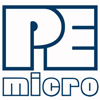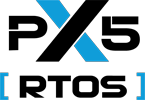Home > On-Demand Archives > Theatre Talks >
Adopting an Energy-Saving Mindset for IoT World
Hatim Jamali - Watch Now - EOC 2023 - Duration: 22:30

In the world of IoT, energy efficiency is a critical factor that determines the success of a device. With the increasing number of IoT devices, it is important to choose the right generation of mobile communication technology that can support the device's requirements while maximizing energy efficiency.
In this presentation, we will explore the different generations of mobile communication technology and the protocols that are available for IoT devices. We will examine the pros and cons of each technology and highlight the key features that make them suitable for different types of IoT applications.
We will also discuss the optimal way to send messages in an energy-efficient manner, taking into account factors such as data rate, latency, and power consumption. By choosing the right combination of technology and protocol, IoT devices can achieve optimal energy efficiency and reliable communication.
The goal of this presentation is to educate IoT developers and decision-makers on the best practices for choosing the right generation of mobile communication and sending messages in an energy-efficient manner. By doing so, they can ensure that their IoT devices are reliable, cost-effective, and sustainable.
While COAP can technically be used over TCP, it is not recommended (because it defeats the purpose of using a lightweight protocol) due to the added overhead and increased power consumption. TCP is a heavier protocol compared to UDP, which is the protocol COAP is designed to run on, and this additional overhead can lead to higher power consumption.
For the second part of the question, LwM2M is built on top of COAP and provides a standardized way of managing IoT devices and applications. It is designed to minimize network traffic and power consumption.
Generally, LwM2M is specifically designed for IoT device management, while COAP and MQTT are more general-purpose protocols that can be used for data transfer and communication.























Thanks for the talk. Is there anything that prevent the use of COAP over TCP ? In this case would we get the same power consumption (or more?) than MQTT ? I am hearing more and more about LwM2M these last few months: do you have any experience on it and how it compared with COAP and MQTT ?